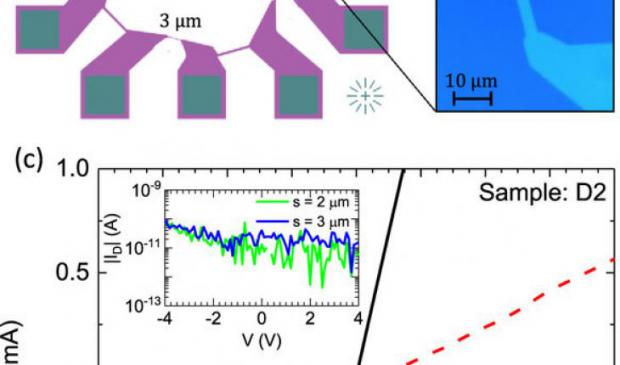
Breaking News
DRINK 1 CUP Before Bed for a Smaller Waist
 Nano-magnets may defeat bone cancer and help you heal
Nano-magnets may defeat bone cancer and help you heal
 Dan Bongino Officially Leaves FBI After One-Year Tenure, Says Time at the Bureau Was...
Dan Bongino Officially Leaves FBI After One-Year Tenure, Says Time at the Bureau Was...
 WATCH: Maduro Speaks as He's Perp Walked Through DEA Headquarters in New York
WATCH: Maduro Speaks as He's Perp Walked Through DEA Headquarters in New York
Top Tech News
 Laser weapons go mobile on US Army small vehicles
Laser weapons go mobile on US Army small vehicles
 EngineAI T800: Born to Disrupt! #EngineAI #robotics #newtechnology #newproduct
EngineAI T800: Born to Disrupt! #EngineAI #robotics #newtechnology #newproduct
 This Silicon Anode Breakthrough Could Mark A Turning Point For EV Batteries [Update]
This Silicon Anode Breakthrough Could Mark A Turning Point For EV Batteries [Update]
 Travel gadget promises to dry and iron your clothes – totally hands-free
Travel gadget promises to dry and iron your clothes – totally hands-free
 Perfect Aircrete, Kitchen Ingredients.
Perfect Aircrete, Kitchen Ingredients.
 Futuristic pixel-raising display lets you feel what's onscreen
Futuristic pixel-raising display lets you feel what's onscreen
 Cutting-Edge Facility Generates Pure Water and Hydrogen Fuel from Seawater for Mere Pennies
Cutting-Edge Facility Generates Pure Water and Hydrogen Fuel from Seawater for Mere Pennies
 This tiny dev board is packed with features for ambitious makers
This tiny dev board is packed with features for ambitious makers
 Scientists Discover Gel to Regrow Tooth Enamel
Scientists Discover Gel to Regrow Tooth Enamel
 Vitamin C and Dandelion Root Killing Cancer Cells -- as Former CDC Director Calls for COVID-19...
Vitamin C and Dandelion Root Killing Cancer Cells -- as Former CDC Director Calls for COVID-19...
Solving the issues around connecting nanowires to single atom qubits

Instead of conventional 1-or-0 computer bits stored in the form of electrical charges, quantum information is stored and manipulated in the form of quantum bits (qubits), which can have multiple values simultaneously. One highly promising qubit candidate is a single atom of elements such as phosphorus (P) buried in ultra-pure silicon-28.
These atoms can be precisely placed using a scanning tunneling microscope (STM).
Instead of searching 40,000,000 square micrometer [4mm x 10 mm] surface area for a one square micrometer area – patterns pinpoint the spot
Using an STM for qubit fabrication requires making electrical connections to the P qubits and wire-like deposits less than 1/100th the width of a human hair. Until now, that has generally been possible only by using disparate, complicated and expensive instruments, the cost of which can easily exceed $10 million, and using onerous, one-off alignment procedures to coordinate the different steps and locate the qubits.



